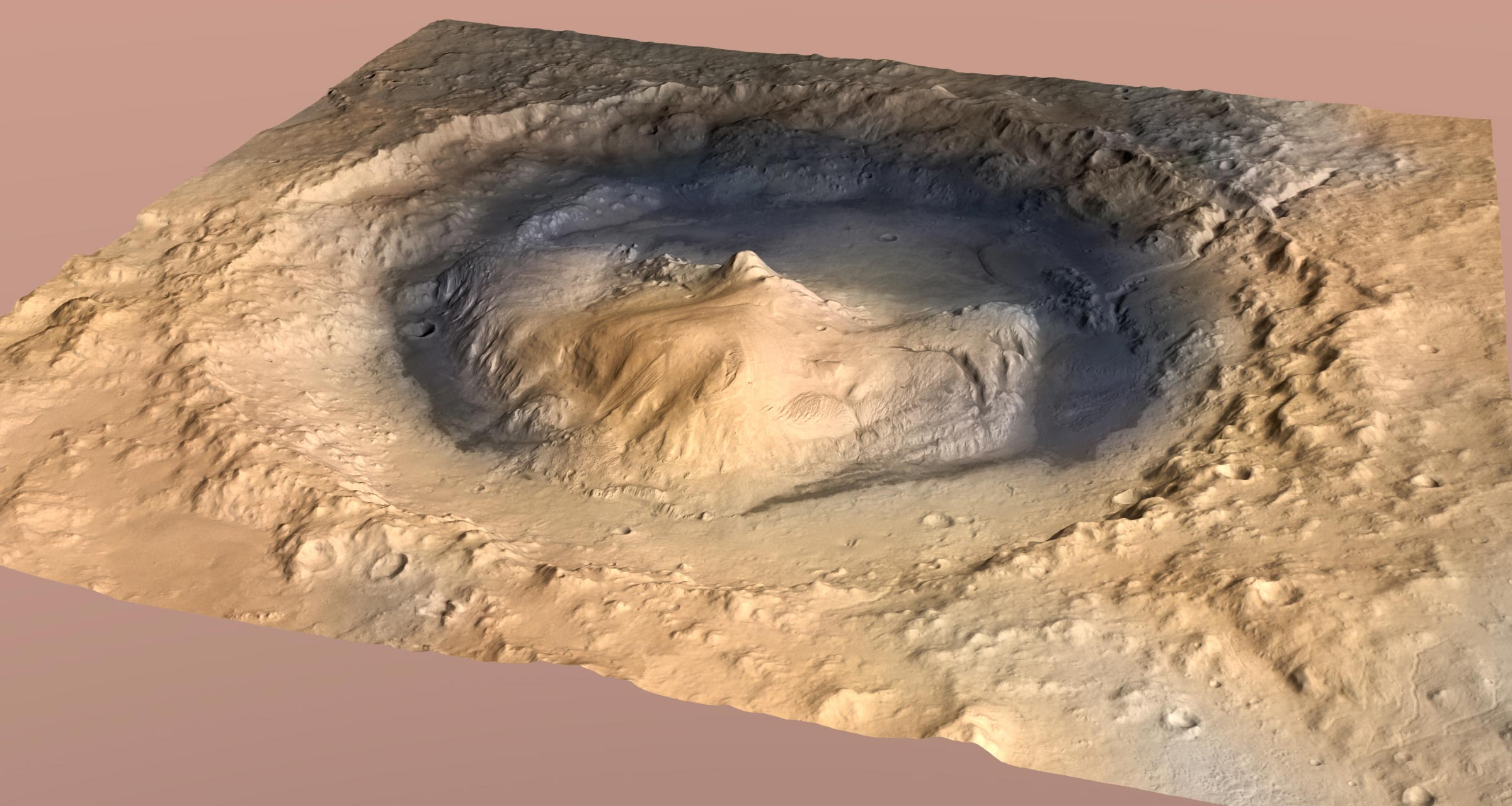November 23, 2020.
Oblique view of Gale Crater, Mars, with vertical exaggeration.
Floods of unimaginable magnitude once washed through Gale Crater on Mars’ equator around 4 billion years ago – a finding that hints at the possibility that life may have existed there, according to data collected by NASA’s Curiosity rover and analyzed in joint project by scientists from Jackson State University, Cornell, the Jet Propulsion Laboratory and the University of Hawaii.
The research, “Deposits from Giant Floods in Gale Crater and Their Implications for the Climate of Early Mars,” was published on November 5, 2020, in Nature Scientific Reports.
As is the case on Earth, geological features including the work of water and wind have been frozen in time on Mars for about 4 billion years.
This composite, false-color image of Mount Sharp inside Gale crater on Mars shows geologists a changing planetary environment.
The antidunes are indicative of flowing megafloods at the bottom of Mars’ Gale Crater about 4 billion years ago, which are identical to the features formed by melting ice on Earth about 2 million years ago, Heydari said.
That water entered Gale Crater, then combined with water coming down from Mount Sharp (in Gale Crater) to produce gigantic flash floods that deposited the gravel ridges in the Hummocky Plains Unit and the ridge-and-trough band formations in the Striated Unit.
These long-lived bodies of water are good indicators that the crater, as well as Mount Sharp within it, were capable of supporting microbial life.
Reference: “Deposits from giant floods in Gale crater and their implications for the climate of early Mars” by E.
Fairén, 5 November 2020, Scientific Reports.
November 22, 2020
November 22, 2020
November 22, 2020
November 21, 2020
November 21, 2020
November 21, 2020
November 21, 2020
